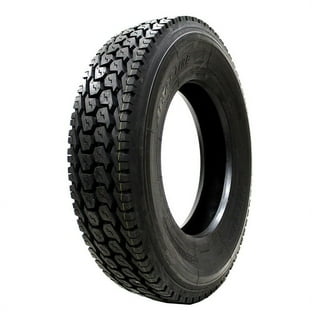Discover Top-Quality Tires Morris IL: Pick the very best for Your Vehicle
Tire Solution: Comprehending Tire Pressure Surveillance Systems
Recognizing Tire Stress Surveillance Equipments (TPMS) is a critical facet of keeping optimum vehicle performance and safety and security on the road. With improvements in auto technology, TPMS has actually ended up being a standard function in modern-day cars, providing real-time info on tire stress levels.

Significance of TPMS
The importance of Tire Pressure Monitoring Systems (TPMS) hinges on their capacity to improve car safety and efficiency with real-time tracking of tire pressure degrees. Preserving the appropriate tire stress is crucial for guaranteeing ideal handling, stopping, and general security of an automobile. TPMS provides motorists with instant feedback on any underinflated or overinflated tires, enabling for timely modifications to be made.
Elements of TPMS
Comprising different crucial aspects, a Tire Stress Monitoring System (TPMS) works as an advanced safety feature in modern vehicles. The major components of a TPMS include sensing units, a control module, and a warning sign. Sensors are typically situated in the tire shutoff stem or affixed to the wheel assembly, where they measure tire pressure and transfer data to the control component. If it spots substantially low pressure in any of the tires, the control module processes this information and sets off a caution. The warning indicator, typically an icon on the control panel, alerts the driver to inspect the affected tire or tires. Some advanced TPMS versions additionally show the actual tire pressure readings for each and every tire, giving vehicle drivers with real-time details to make certain optimum tire efficiency and security. By keeping an eye on tire pressure continuously, TPMS helps protect against crashes, minimizes tire wear, and enhances fuel performance, making it an essential component for vehicle safety and performance.
Kinds Of TPMS

On the other hand, indirect TPMS depends on the car's wheel speed sensors to monitor tire pressure. This system discovers underinflation by contrasting the rotational rates of the wheels. Indirect TPMS is much less expensive than straight TPMS, as it makes use of existing sensing units within the lorry.
While straight TPMS supplies more accurate analyses, indirect TPMS is simpler in design and commonly calls for less upkeep. Both systems have their advantages and limitations, and the choice between them often depends upon variables such as price, vehicle make, and personal choice. Comprehending the distinctions between these two kinds of TPMS can help car owners make notified choices regarding tire maintenance and safety.
TPMS Upkeep Tips
Effective maintenance of TPMS is necessary for guaranteeing ideal efficiency and safety and security of your vehicle. Regularly examining the TPMS sensing units for any damage or rust is important. Make sure that the sensors are complimentary and clean from debris that can hinder their functioning. Additionally, it is advisable to check the sensing unit batteries regularly and replace them as required to ensure precise readings. Conduct regular examine the tire stress degrees and contrast them more with the TPMS analyses to guarantee they are constant. Recalibrate the system complying with the supplier's standards if there are any type of inconsistencies. In addition, throughout tire rotation or substitute, see to it that the TPMS parts are dealt with carefully to stop any possible damage. Last but not least, if the TPMS cautioning light brightens on the dashboard, address the problem quickly by checking the tire stress and the general system for any kind of faults. By adhering to these maintenance ideas, you can lengthen the life expectancy of your TPMS and enhance the safety and security of your driving experience.
Benefits of Proper Tire Stress
Keeping correct tire stress, as emphasized in TPMS Upkeep Tips, is crucial for reaping the numerous advantages related to ideal tire pressure degrees. One of the primary advantages of keeping the right tire stress is boosted gas efficiency. When tires are properly inflated, there is less moving resistance, causing much better fuel economy. Additionally, correct tire stress makes sure also tire wear, prolonging the lifespan of the tires and advertising more secure driving problems. With the appropriate tire stress, lorries likewise have much better handling and traction, particularly in negative climate problems. This can enhance general driving efficiency and safety for the driver and travelers. In addition, preserving ideal tire stress can contribute to a smoother and extra comfortable adventure by minimizing vibrations and sound brought on by underinflated tires. To conclude, the benefits of correct tire stress exceed simply tire durability; they encompass improved fuel efficiency, boosted safety, far better vehicle efficiency, and overall driving comfort.
Conclusion
Finally, recognizing tire pressure tracking systems (TPMS) is crucial for preserving optimum tire stress and making sure lorry safety. By acknowledging the relevance of TPMS, recognizing with its components, recognizing the various types offered, sticking to proper upkeep tips, and recognizing the advantages of preserving correct tire pressure, drivers can boost their driving experience and prolong the life-span of their tires. Proper tire stress is essential to safe and effective lorry operation.
